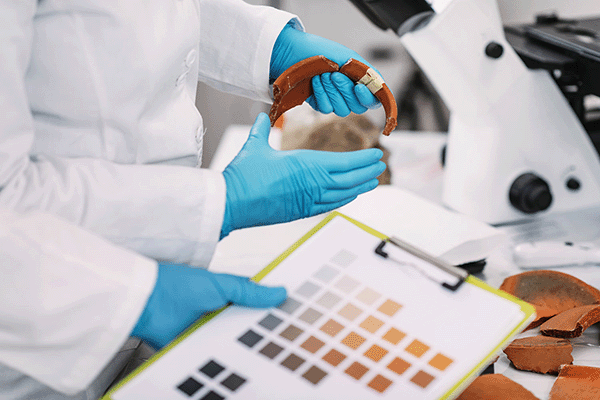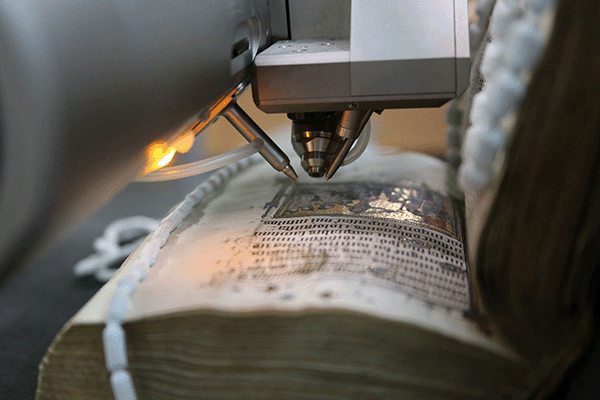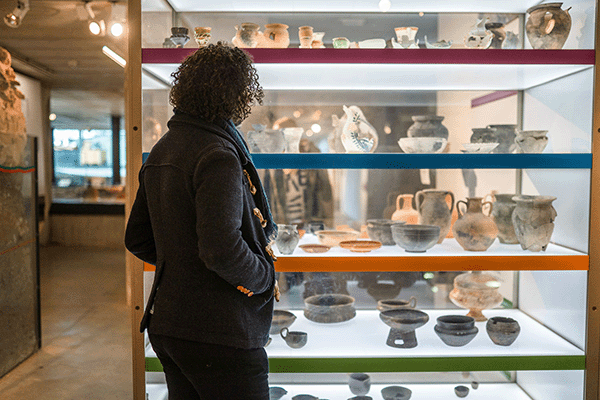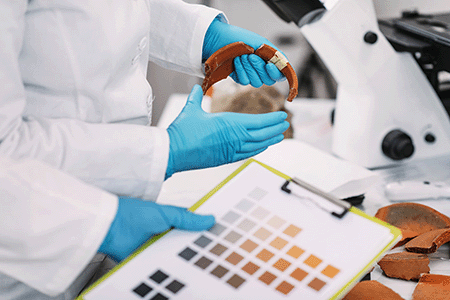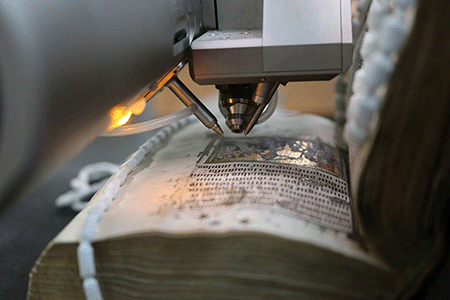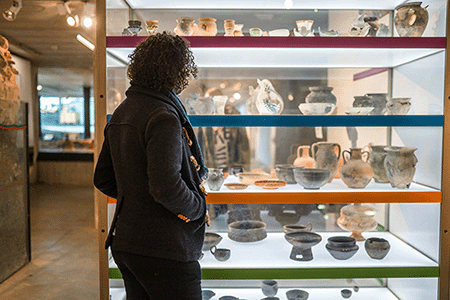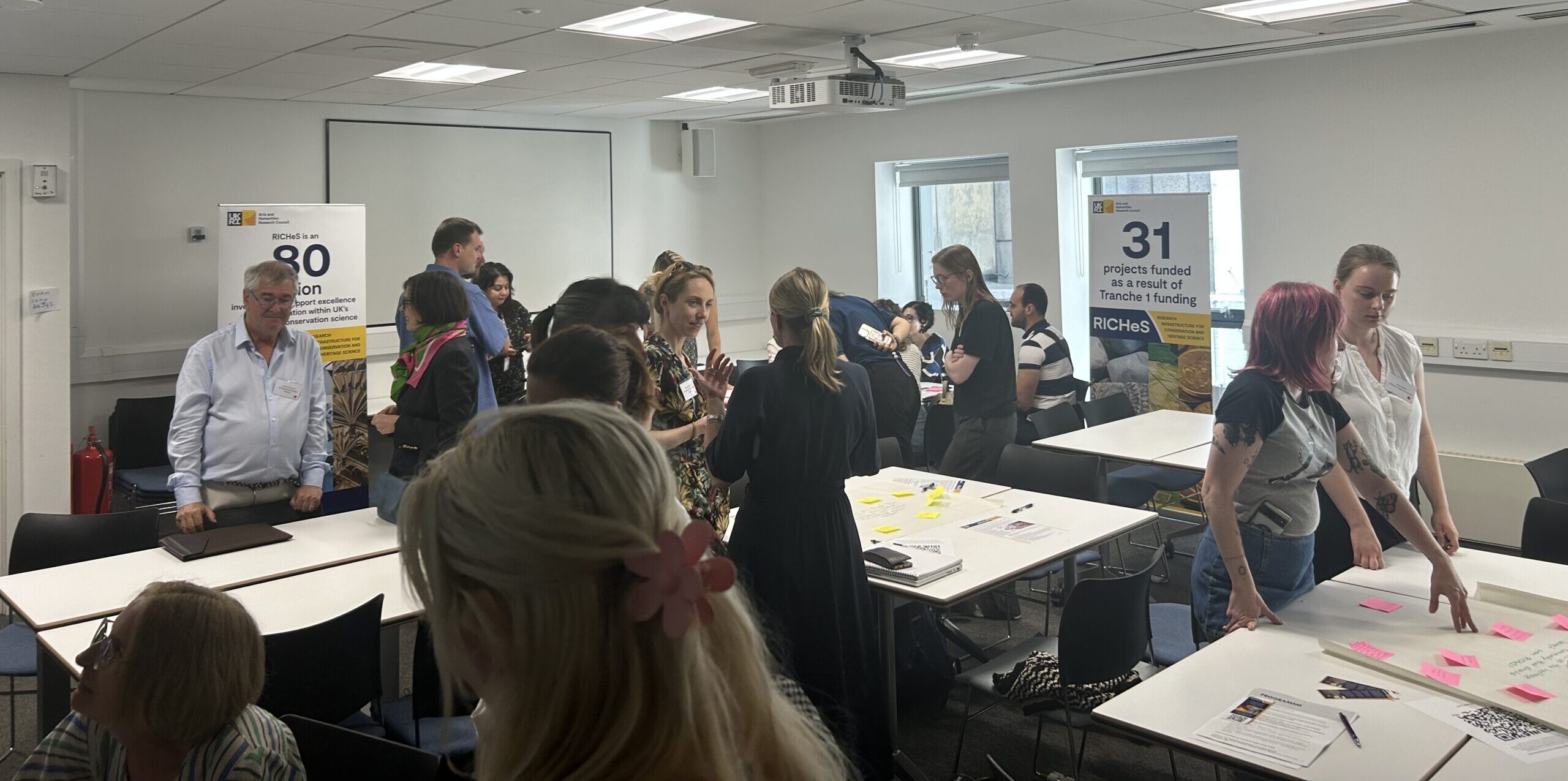In July, the RICHeS team were delighted to attend the inaugural National Heritage Science Forum (NHSF) Conference: Trends in Heritage Science hosted at University College London. The event brought together members of the UK and international heritage science communities for a vibrant day of panel discussions, workshops, exhibitions and networking.
This milestone event for the NHSF demonstrated the strength, diversity and collaborative spirit of the heritage science sector, spanning academic institutions, independent researchers, public bodies and heritage sector organisations.
Exploring Trends in Heritage Science
The conference programme focused on three key themes:
- The economic value of heritage science
- Towards sustainable historic buildings
- Digital innovation in heritage science
Each panel offered thought-provoking presentations and lively discussions that showcased the field’s innovative potential, from policy-level thinking to cutting-edge research and practice. These sessions highlighted not only the range of work taking place but also the growing recognition of heritage science as a contributor to economic, environmental and technological progress.
RICHeS Workshop: Empowering Conservation and Heritage Science
As part of the afternoon programme, the RICHeS team hosted a workshop titled Empowering Conservation and Heritage Science through a Distributed Research Infrastructure. This began with an introduction to the RICHeS programme and its role as the UK National Node for E-RIHS for which the first Call for Access is open until 30 September 2025. The RICHeS team were joined by Professor Julian Richards, Director of the Heritage Science Data Service (HSDS) who offered a preview of the data catalogues and services set to launch in autumn 2025. The HSDS will play a critical role in the RICHeS digital infrastructure by supporting data preservation, discovery and enabling access to data across the conservation and heritage science sector.
While RICHeS’ projects will formally go live in 2026, the RICHeS team were pleased to share early impact case studies from the University of Southampton, Historic Royal Palaces and the University of Bradford. These examples highlighted the collaborative and interdisciplinary heritage science work already underway and what is possible as the distributed infrastructure develops.
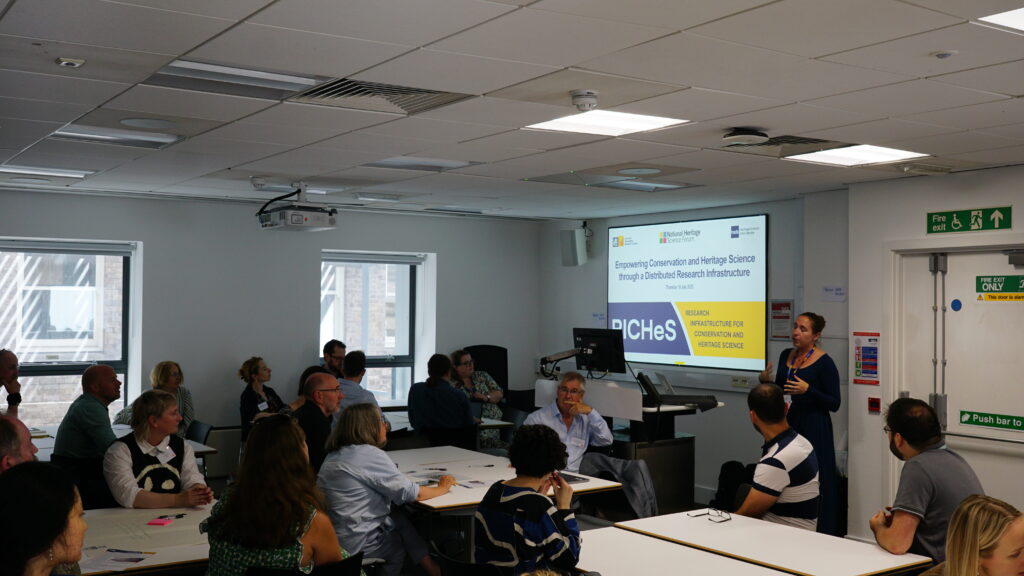
Attendees were introduced to the RICHeS programme and the HSDS. Image credit: NHSF/UCL
Collaborative dialogue and key questions
Our workshop concluded with an open and participatory session inviting attendees to circulate, reflect and respond to a series of questions designed to spark discussion and gather insight from across the community:
- How do you think the RICHeS distributed infrastructure will impact the heritage science sector?
- How can RICHeS support collaboration and public engagement with heritage science?
- What challenges or barriers exist to RICHeS’ aim to “unlock access to heritage science”?
- Who makes up the heritage science community that should benefit from RICHeS?
- Who could benefit from innovation and technology transfer from heritage scientists?
- What further questions do you have about RICHeS and the HSDS?
It was great to see this reflection from one of the attendees, shared by the NHSF. We are currently reflecting on the thoughtful and diverse input shared during this session. These conversations will help inform how we shape and communicate the next stages of the RICHeS programme.
Looking ahead
We were proud to contribute to such an informative and engaging event and to support the ongoing work of the National Heritage Science Forum in strengthening the UK’s heritage science community. Special thanks to the organisers, speakers, exhibitors and attendees who made the day a success.

